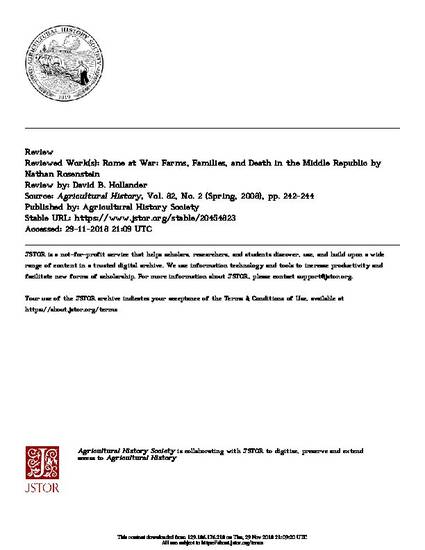
War, no doubt, sells better than agriculture and perhaps this explains the choice of main title for Nathan Rosenstein's book. Thus, it is important to emphasize that Roman farming is at the center of his important new study that proposes an alternative explanation for Italy's agricultural crisis in the late second century BCE. The first chapter treats Italian agriculture from the Second Punic War to the tribunate of Tiberius Gracchus. Rosenstein begins by presenting the prevailing explanation for the crisis. This interpretation suggests that after the Hannibalic War, Rome's smallholders suffered increasingly from competition with large, slave-staffed estates and "the city's demands for soldiers began to conflict fundamentally with the needs of husbandry" because soldiers, now fighting abroad in Spain and elsewhere, were no longer able to return to their farms between campaigning seasons (3). This introductory chapter provides a useful overview both of the author's critique of the prevailing view and his own interpretation.
Available at: http://works.bepress.com/david_hollander1/6/

This book review is published as Hollander, D.B., Rome at War: Farms, Families, and Death in the Middle Republic. By Nathan Rosenstein. Agricultural History, 2008, 82(2); 242-244. Posted with permission.